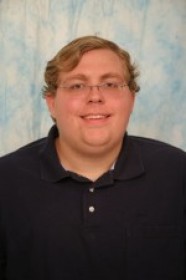
PhD Thesis Proposal
May

10:30 am to 12:00 am
Event Location: NSH 3305
Abstract: Humans effortlessly manipulate objects in cluttered and uncertain environments. In contrast, most robotic manipulators are limited to carefully engineered environments, e.g. factories, to circumvent the difficulty of manipulation under uncertainty. Contact sensors can provide robots with with the feedback vital to addressing this limitation. However, there are three principal challenges to using contact sensing. First, contact is inherently discontinuous. Second, contact sensors only provide rich information while in contact. Third, planning for contact requires reasoning about the physics of interaction.
This thesis proposes a framework for using real-time feedback from contact sensors to reliably manipulate objects under uncertainty. Our framework formulates manipulation as a partially observable Markov decision process. We exploit the structure of the problem to address the challenges of contact and find a policy that reliably achieves a goal.
We show that the optimal policy naturally decouples into pre- and post-contact stages. We present an algorithm that leverages this insight to reuse one post-contact policy across multiple problem instances. Then, during execution, we exploit the lower-dimensional structure of contact to estimate the pose of the object. This algorithm generates policies that succeed even under uncertainty, but makes several assumptions.
In particular, the algorithm (1) requires discretizing the state space at a fixed resolution, (2) ignores kinematic constraints, and (3) assumes perfect proprioception. We propose to relax all three of these assumptions. First, we propose to plan without constructing a fixed discretization of the state space. Second, we propose to consider kinematic constraints during planning by using a powerful heuristic to guide our exploration. Third, we propose to model proprioceptive error by compactly representing belief states using a factored model.
Finally, we evaluate the efficacy of our framework by performing household manipulation tasks both in simulation and on a real robot. We expect that our framework will increase the success rate and improve task performance when compared to algorithms that do not reason about contact sensing during planning.
Committee:Siddhartha S. Srinivasa, Co-chair
Nancy S. Pollard, Co-chair
Geoffrey J. Gordon
Tomás Lozano-Pérez